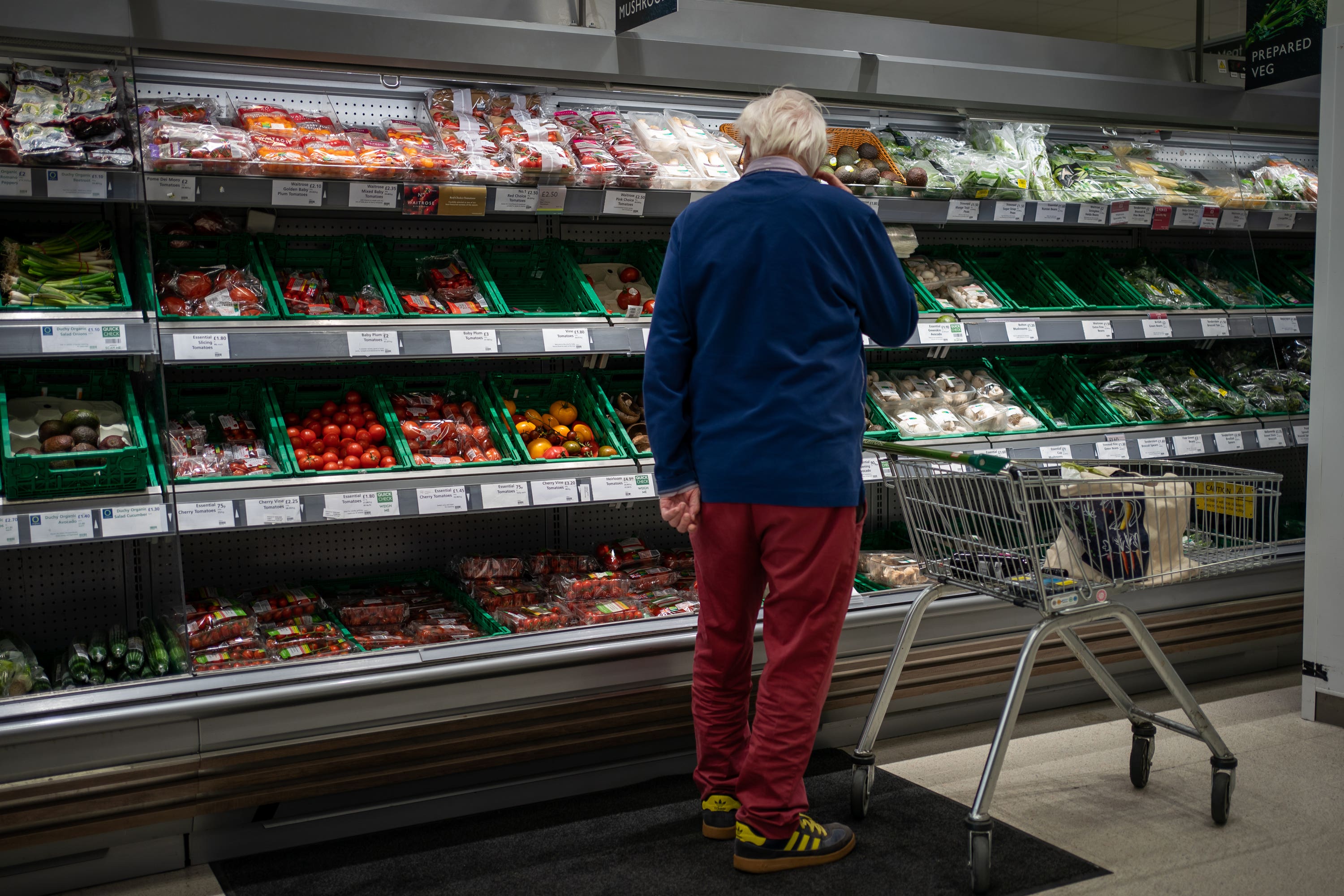Environment minister: signs we’re at peak of rising food prices
Labour criticised the Environment Secretary for not being present in the Commons to discuss the issue.

Your support helps us to tell the story
From reproductive rights to climate change to Big Tech, The Independent is on the ground when the story is developing. Whether it's investigating the financials of Elon Musk's pro-Trump PAC or producing our latest documentary, 'The A Word', which shines a light on the American women fighting for reproductive rights, we know how important it is to parse out the facts from the messaging.
At such a critical moment in US history, we need reporters on the ground. Your donation allows us to keep sending journalists to speak to both sides of the story.
The Independent is trusted by Americans across the entire political spectrum. And unlike many other quality news outlets, we choose not to lock Americans out of our reporting and analysis with paywalls. We believe quality journalism should be available to everyone, paid for by those who can afford it.
Your support makes all the difference.There are signs recent rises in the cost of food have reached their peak, environment minister Mark Spencer has told MPs.
His comments came after inflation unexpectedly increased in February, with Office for National Statistics (ONS) figures showing food prices hit their highest rate in more than 45 years.
While Mr Spencer said there are “signs that this is the peak of this food inflation”, he did not directly say, when challenged, whether the Government is on track to meet its goal of halving inflation by the end of this year.
He was speaking in the Commons during an urgent question on food price inflation.
Conservative former environment secretary Theresa Villiers said the Government’s measures to support people with the cost of living are “among the most generous in Europe”.
“But this news on food price inflation is really worrying, so can the minister assure us that the Government is on track to deliver the Prime Minister’s promise to halve inflation by the end of the year?” she said.
Mark Spencer responded: “We continue to monitor inflation. The Prime Minister has the ambition to reduce inflation.
“Food prices have driven that inflationary figure over the last month. But the good news is we are starting to see signs that we are at the peak of that. And already, some of those driving costs – like the wholesale price of gas, fertiliser and imports – are beginning to ease back.”
He also told MPs: “We are seeing signs that this is the peak of this food inflation.”
The urgent question was raised by shadow environment secretary Jim McMahon, who hit out at Environment Secretary Therese Coffey for not attending the session.
The Labour frontbencher said: “I feel like I’m shadowing a shadow. Where is the Secretary of State on the most important issue at this point in her brief?”
He warned: “The danger is, if inflation overall isn’t curbed, that will have an impact on people’s ability to pay their mortgages and we could see further interest rate rises as a result.”
Mr Spencer noted his ministerial brief is food, farming and fisheries, and stressed the Government’s support with the cost of living.
He also claimed vegetable shortages were not the reason why food prices soared to their highest rate in more than 45 years.
ONS data shows food and non-alcoholic drinks prices rose by 18% year-on-year last month, up from 16.7% in January and the highest since August 1977.
The ONS noted there were “particular increases” for some salad and vegetable items due to high energy costs and bad weather across parts of Europe leading to shortages and rationing.
Mr Spencer told the Commons: “Whilst recent unseasonable weather in Morocco has also created some temporary supply disruption to fruit and vegetables, domestic retailers have held prices comparatively low compared to the rest of Europe, where increased demand led to some cases of 300% rises in the price of some vegetables.
“A number of media outlets have reported that the recent shortage of some salad and vegetables has been the driver for the increase in food inflation in February but this is not the case.
“The overall inflation rate increases have been caused by several factors, there are other categories where price increases have been greater than that of vegetables over the past year.
“These high overall inflation rates are driven by high utility prices and pressures on global supply chains that are being felt across Europe and beyond. Commentators expect the rate of inflation both across the economy and for food and drink to be near its peak.”